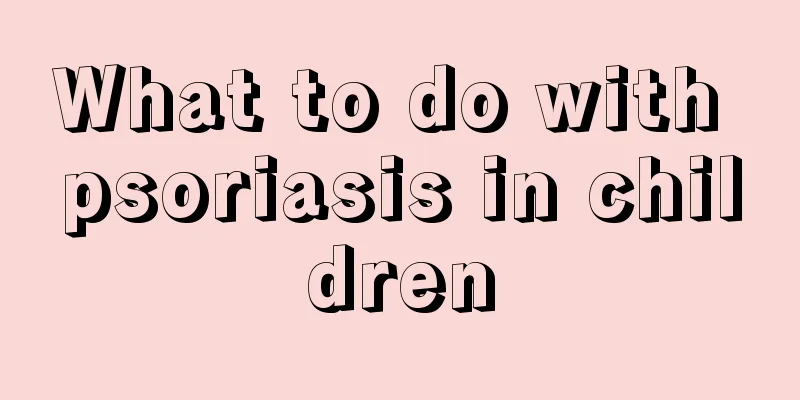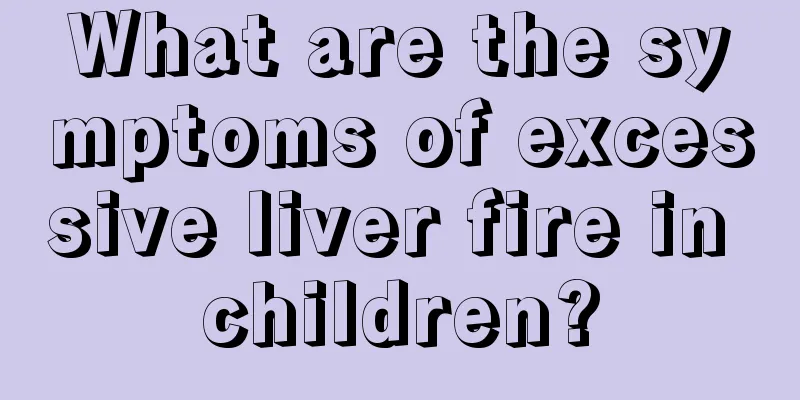What to do with psoriasis in children

|
Parapsoriasis is a very rare skin disease. People with this disease will have symptoms such as erythema, infiltration, scaly lesions, papules, etc. on their skin, which looks very scary. The most frightening thing about parapsoriasis is that people are not aware of it when it occurs, so many people take a long time to discover that they have parapsoriasis. So what should we do if children have psoriasis? How to treat psoriasis Parapsoriasis plaques Although this type of skin lesions are not easy to disappear, the prognosis is good and there are no sequelae, so no treatment is necessary. Commonly used methods include external application of tar preparations or glucocorticoid preparations, simple ultraviolet irradiation or PUVA therapy. Other topical preparations that can also be tried include imiquimod, nitrogen mustard, carmustine, and tacrolimus. Parapsoriasis plaques Highly effective topical glucocorticoid preparations. Simple UVB irradiation or PUVA therapy should be performed once a day or every other day at the beginning, and the irradiation dose can be increased as appropriate until the skin lesions disappear. Then active maintenance treatment is required, such as once a week. The goal of treatment is to control the progression of the disease and may also help prevent malignant changes. Although external application of nitrogen mustard solution and irradiation with megavoltage electron beams are effective, they should not be used too early because of the significant adverse reactions. Vitamin D2 (250,000 U per day for 2 to 4 months), interferon-α and interleukin-12 can also be tried. Patients with this type should be closely observed for signs of malignant transformation, such as lymphadenopathy, hepatosplenomegaly, and induration of skin lesions. Suspicious skin lesions should be biopsied promptly. According to specific treatment Systemic treatment Corticosteroids: can be tried for acute or progressive skin lesions to relieve the condition. Psoralen: Combined with ultraviolet PUVA, UVB or corticosteroid therapy, it can inhibit the progression of the disease to mycosis fungoides. Others: Vitamin D2, dapsone (DDS), chloroquine, tetracycline, etc. Patients with clinical and pathological findings consistent with early mycosis fungoides are often treated with UVB, PUVA, nitrogen mustard, or carmustine. Topical treatments Emollients, tar, corticosteroids or ultraviolet light therapy can be used according to different skin lesions. Infiltrative plaques can be treated with topical nitrogen mustard, and the therapeutic effect varies from person to person. |
>>: Height and weight of a seven-year-old boy
Recommend
Four key points for reading fairy tales with children
When reading fairy tales to children in a literar...
What is the best treatment for laryngitis in children?
Every parent hopes to see their children's he...
Can a newborn baby be bathed every day?
Babies are very small after birth, and their skin...
How to care for asthma in children?
Asthma is one of the common respiratory diseases ...
What to do if your child has a bad stomach
Children with poor gastrointestinal function ofte...
What to do if a 10-year-old child has heel pain
Many of our children may often suffer from heel p...
What to do if the baby cannot digest the milk and spits it up
With the baby coming into the world, it brings jo...
What causes sinusitis in babies?
The nose is very important to us. It helps us sme...
What are the consequences of brain hypoxia in children?
As we all know, the human brain needs a constant ...
Treatment of sinusitis in children
The occurrence of sinusitis in children makes man...
What should I do if my baby has a scar on his face?
A baby's skin is very tender and elastic, and...
Why do children have yellow teeth?
With the development of society, children's s...
How to improve memory in children
Memory is becoming more and more important in tod...
Can children eat mangoes when they have a cold? What should they eat?
Children have weaker resistance and are very susc...
How to educate a 4-year-old child
Children are naughty by nature and are not bound ...









